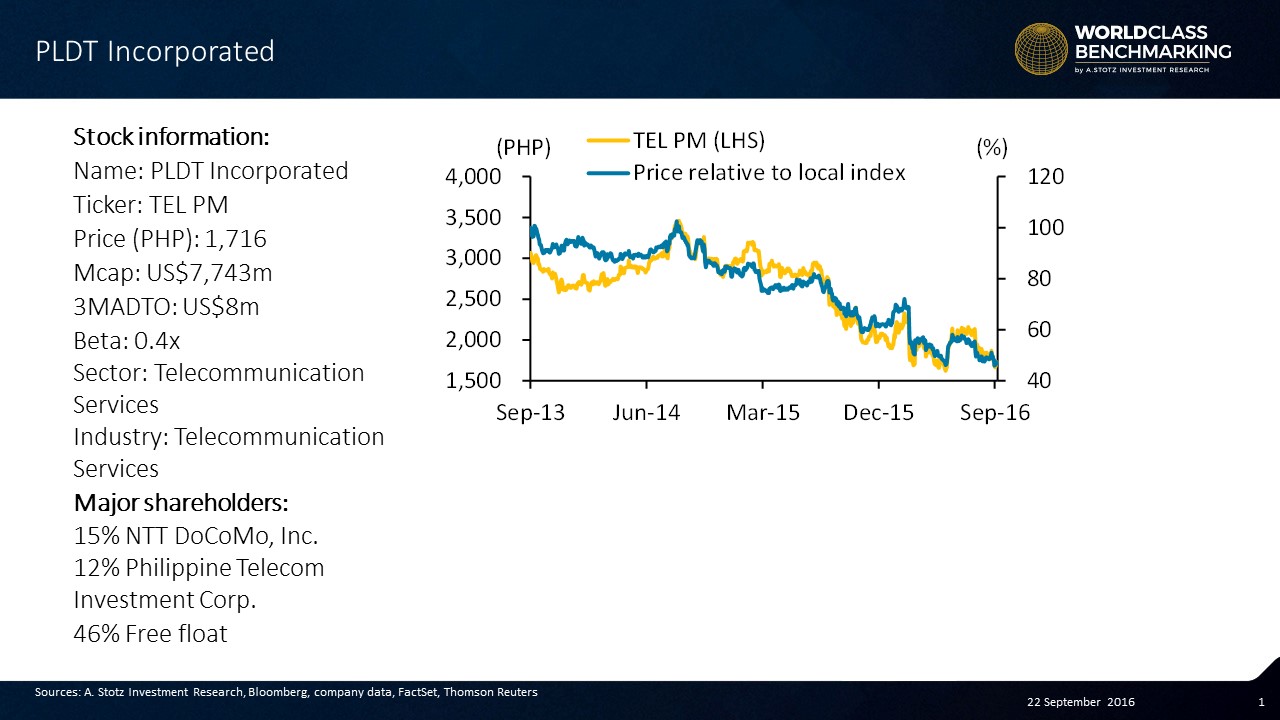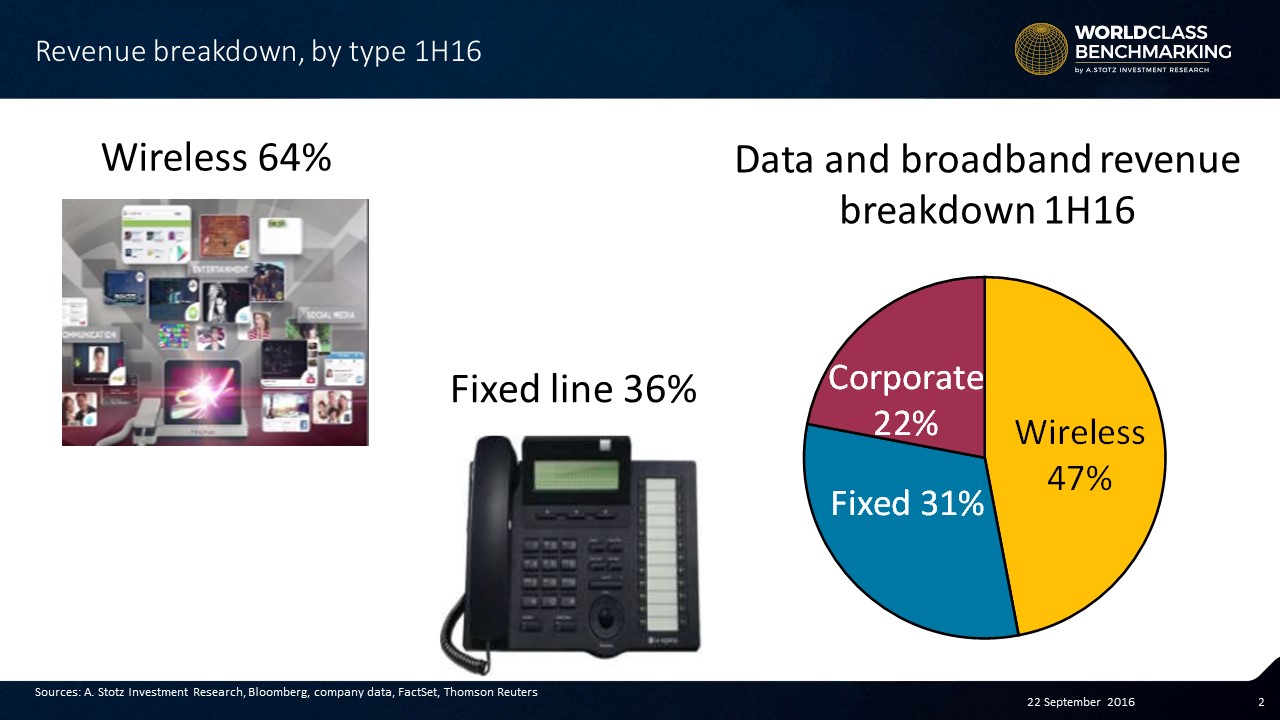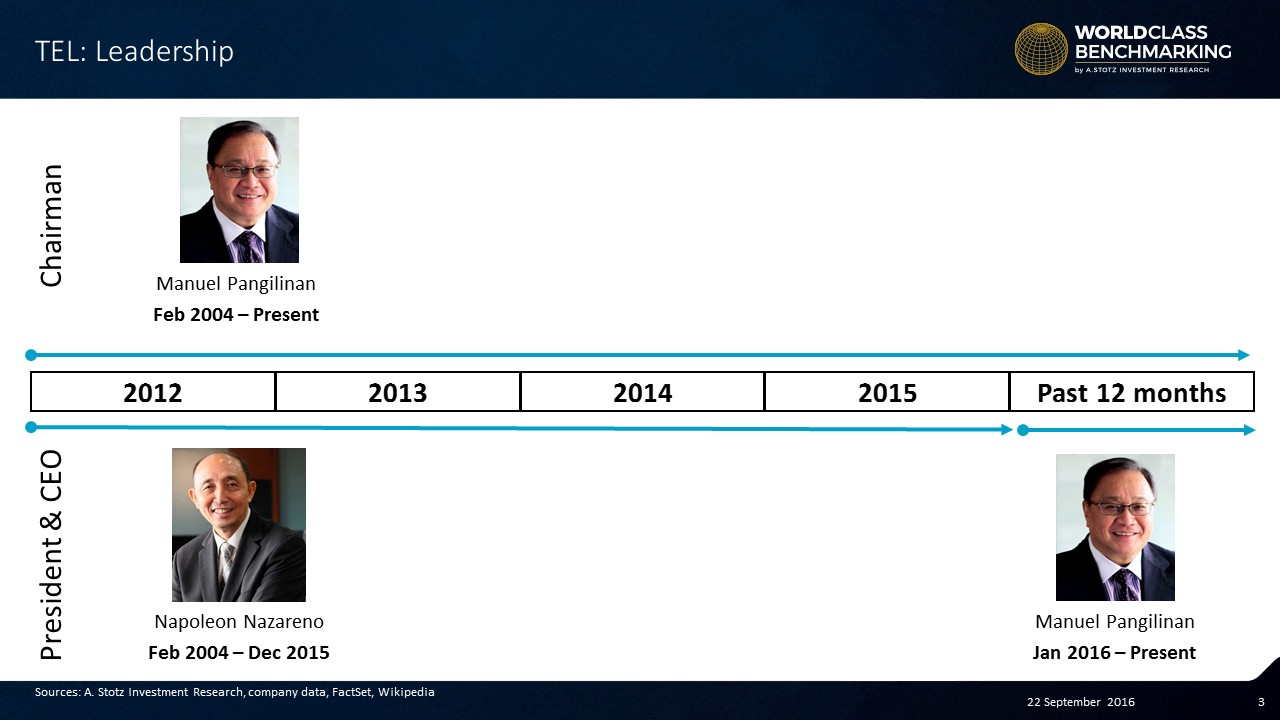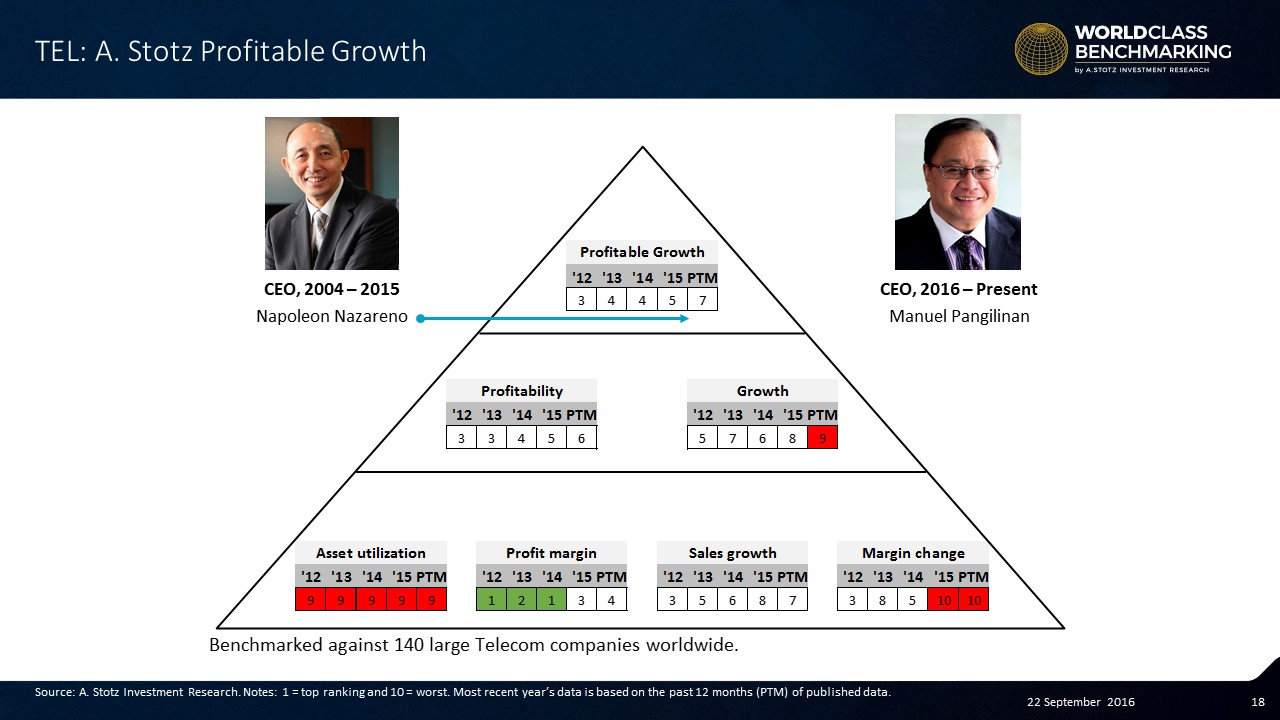A Telecom in Tough Waters
Watch the video with Andrew Stotz or read a summary of the World Class Benchmarking on PLDT Incorporated.
Background
PLDT Incorporated (TEL) provides Filipinos with telecommunications services, fiber-optic backbones, fixed-line and cellular networks operating in three business groups: fixed-line, wireless and others.
The company had about 65 million cellular subscribers, 5 million broadband subscribers and 2 million fixed line subscribers in the first half of 2016.
Business Description
TEL’s wireless business renders cellular and wireless broadband, satellite and other services. Cellular data services include text messaging and SMS.
The wireless network infrastructure operates via a digital GSM network, 3G (HSPA) and 4G LTE. The fixed-line network infrastructure includes installed phones and other equipment such as modems on customer premises, copper and fiber-access lines, fiber-optic connections between exchanges and long-distance transmission equipment.
Its fixed-line business offers local, international long distance, national long distance, data, network and miscellaneous services. The network reaches all major cities and towns in the Philippines but is concentrated in the Metro Manila area.
In May 2016, TEL and Globe Telecom (GLO PM) announced that they would each acquire 50% of the San Miguel Corporation’s (SMC PM) telecom business. The financial due diligence is ongoing, but the deal should give TEL access to more spectrum and improve its network’s coverage and capacity.
Leadership
Having already served as CEO between 1998 and 2004, and as the Chairman since then, Manuel Pangilinan was an easy choice when the board decided to change leadership in January of 2016.
Since taking on the role of CEO at the start of the year, Pangilinan has made quick decisions, including the partial acquisition of San Miguel Corporation, in order to right the struggling corporation.
World Class Benchmarking
Profitable Growth has fallen to #7 from #3 over the last five years. TEL now only ranks better than 42 of 140 large Telecom companies.
Profitability was a strength for the company, but it is now ranked below average.
Growth had been middling in 2012 but has cratered to #9 since then.
Profit Margin is still above average, but Asset utilization and Margin change are both performing well below the company’s peer group.
What Filipino Telecom do you prefer? PLDT or Globe Telecom?
If you like our research, please share with your friends.
DISCLAIMER: This content is for information purposes only. It is not intended to be investment advice. Readers should not consider statements made by the author(s) as formal recommendations and should consult their financial advisor before making any investment decisions. While the information provided is believed to be accurate, it may include errors or inaccuracies. The author(s) cannot be held liable for any actions taken as a result of reading this article.




